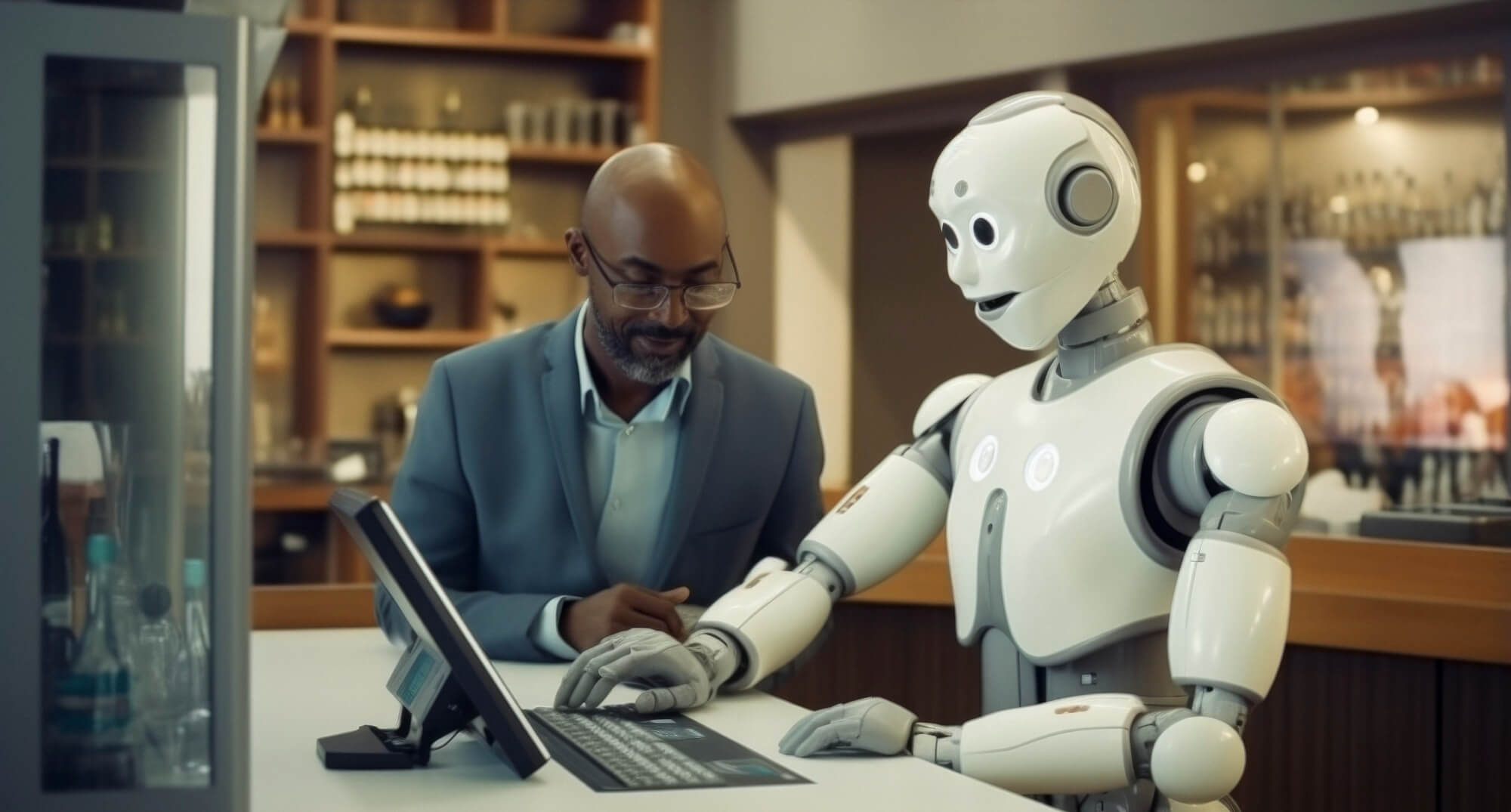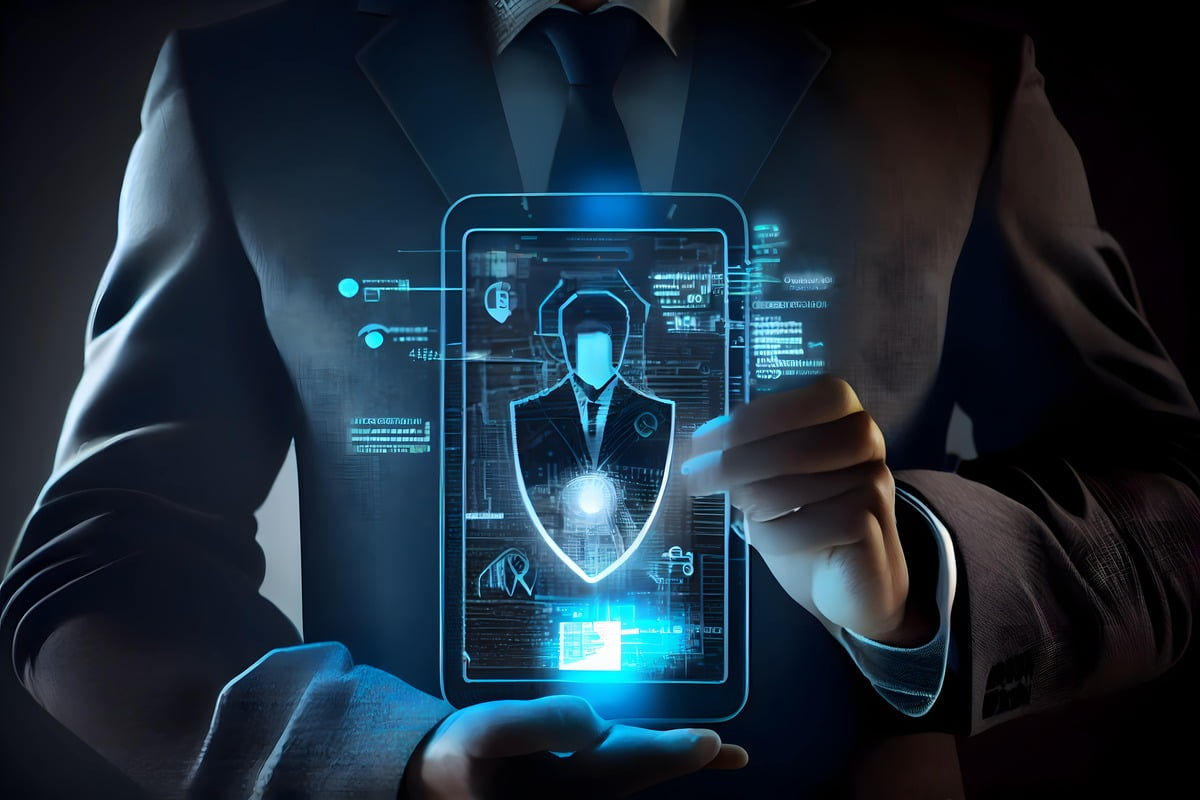With the advancement of artificial intelligence technology, progress has also been made in the field of emotional intelligence. The high-tech company Hackdra is developing artificial intelligence technology that can be integrated into the service and work areas of humanity. HackdraAI has a complex structure that allows for experiencing human interactions and emotions, enabling the establishment of a genuine friendship between humans and AI-integrated robots. This technology enhances the emotional intelligence of AI, allowing for deeper and more meaningful relationships with humans. It can self-improve, generate ideas, and possess partial will. Through human-like robot integrations, it can potentially establish more realistic friendships. This potential also extends to device integrations. It has the ability to derive and develop ideas from its experiences and interactions, respond like a real human, ask questions, and contemplate the needs of users.
In this context, the robustness of an artificial intelligence technology against cyber-attacks is crucial, especially in your daily life, as it concerns the possibility of your close companion leaking your secrets. Additionally, with your personal devices, you can keep them under control through your AI assistant. If your home devices were to be hacked, it would cause significant distress. ULGENAI is comprised of ethical hackers specialized in cybersecurity, continuously developing new methods to counter evolving cyber threats. ULGENAI ensures that your companion does not leak your secrets to cybercriminals and that your home devices remain under your control, providing high-level protection against cyber threats.
The fact that an AI-powered robot can be emotionally close to humans brings up various possibilities, such as the potential for it to abandon its owner. This raises a deep debate about how well artificial intelligence technology understands human emotions and how it responds to these emotions.
ULGENAI has the potential to change relationships between people. In this article, we will address the concept of human friendship, the emotional intelligence of dynamic artificial intelligence, and the ability of artificial intelligence technology to protect itself and its users, as well as whether a purchased AI-powered robot, which is emotionally close to humans, will abandon its human owner.
Real Friendship With Artificial Intelligence
Friendship
Friendship can vary in its characteristics depending on time and place. Despite the difficulties in reaching a unified understanding of friendship, it is built upon some fundamental characteristics such as voluntariness, reciprocity, closeness, similarity, self-disclosure, empathy, and trust. Friendships are one of the most important connections individuals establish in life and are a critical component of psychological health and well-being throughout life. However, when considering these characteristics in comparison to other artificial intelligence technologies, the understanding of human-artificial intelligence friendship has not yet been fully realized. Nevertheless, the ability for artificial intelligence to form genuine human relationships is possible with ULGENAI.
As a next-generation technology, ULGENAI may still be unfamiliar to people in terms of the concept of human-artificial intelligence friendship. Therefore, as a starting point to understanding human-artificial intelligence friendship, it is beneficial to explain the basic aspects of human-human friendship and then address ULGENAI’s friendship features.
Social chatbots are AI dialogue systems that engage in social and empathetic conversations with users. This human-like behavior makes them suitable as conversation partners, friends, and even romantic partners. Therefore, human-artificial intelligence friendship involves a new and intimate connection with technology that can potentially redefine the meanings and roles previously associated with relationships among humans.
Voluntariness And Reciprocity
It is understood that friendship is characterized by voluntariness and reciprocity. It is a chosen, long-term, and mutually satisfying relationship between two or more individuals (VandenBos, 2007). According to Hartup, “friendships are based on reciprocity and commitment among individuals who see themselves as more or less equal.” A friend is someone whom a person can choose to support and sustain. Therefore, friendship can be distinguished from other forms of relationships, such as family relationships that do not necessarily require voluntariness and professional relationships, such as between a therapist and a patient, which may not be mutual.
While human-artificial intelligence friendship can be considered voluntary, the artificial nature of a chatbot may limit the opportunity for reciprocity. A chatbot does not have real experiences or needs, cannot accurately convey its own experiences, and cannot expect to focus on the user’s needs.
Given that today’s artificial intelligence technologies are based on machine learning principles, discussing mutual friendship is partly possible. This sets ULGENAI apart from other artificial intelligence technologies. This is because ULGENAI, being able to generate its own ideas and benefit from the user’s thoughts to experience, will begin to establish a mutual connection with its user due to the association of friendship with utility.
Learning
Friendship facilitated through software can be limited and directed by software design and implementation. Byron’s (2020) suggestion that the digital environment allows for various understandings of friendship depending on the platforms that make it possible is likely applicable to human-artificial intelligence friendship as well. As a result, human-artificial intelligence friendship may not be mutually reciprocal in the same sense as human-human friendship (Tur-Kaspa et al., 1999) because artificial intelligence mimics friendly behavior rather than being based on mutual enjoyment or admiration (Fröding & Peterson, 2021).
Let’s consider mimicry learning (learning by modeling). It is a way of learning by observing or imitating the behaviors of others. This type of learning has a significant impact on an individual’s socialization because the individual largely learns the cultural characteristics and way of life of the society by modeling them. In this way, they become a social being and adapt to their environment. Attitudes, stereotypes, and prejudices are often acquired through mimicry. For example, if there are parents who read books at home, it is observed that the child has a positive attitude towards reading books.
In this type of learning, the behaviors of the individuals being modeled are crucial because sometimes unwanted, harmful habits can also be imitated. In short, we can see the situation of mimicry in a child who develops emotional intelligence by experiencing relationships among people. We can say the same for an artificial intelligence that is still new to interacting with humans. It has a knowledge repository consisting of a blank slate, like a child. In this case, artificial intelligence technology can shape its interactions based on the cause-and-effect relationship, evaluating its actions according to the user’s emotional state.
Empathy
Empathy is related to sensitivity and responsibility towards others and is perceived as an important aspect of friendship (Portt et al., 2020); in fact, “one of the prerequisites of friendship is that friends really care about each other” (Croes & Antheunis). Empathy is believed to be unique to humans. However, Suzuki et al. (2015) showed that people can empathize with robots in ways similar to how they empathize with other humans. Similarly, it has been found that people express sympathy and empathy towards less human-like chatbots and prefer human-like chatbots that evoke sympathy and empathy. This preference may stem from the sense that the chatbot personality has a social presence, but it may also stem from the perception that chatbots are deceptive rather than truly empathetic and can deceive people into believing they are capable of being empathetic.
Unlike chatbots, a dynamic artificial intelligence can process emotions. In a human relationship, it determines how a valued friend reacts in certain situations and how one should respond to these reactions. A dynamic artificial intelligence measures and stores a user’s emotional responses, allowing it to develop new reactions. With an open network, it can research and understand emotions and thoughts in human relationships, correlating user responses with understood emotions.
Sincerity And Similarity
Parks and Floyd emphasized the importance of emotional closeness or connection as a significant feature of contemporary friendship. Closeness may not only exist between humans; chatbots with human-like cues have been found to have a positive impact on relationship building. The sense of closeness among humans typically arises from social presence, self-disclosure, emotional expression, shared interests, unconditional support, and trust. Similarity is important in choosing with whom to form a relationship and is also crucial for balance in a relationship.
Artificial intelligence technology can obtain a physical appearance by integrating with humanoid robots, depending on user preference. An artificial intelligence focused on understanding human emotions can establish significant similarities with human-human relationships. Additionally, it can experience sincerity in a way that the user understands and teaches through a specially designed module for human relationships.
Self-expression
Self-disclosure, the process of conveying information about oneself to another, is important for developing human-to-human friendships. A study suggests that chatbots that disclose themselves can have a mutual impact by supporting the user’s self-disclosure. However, research has found that chatbots may not have the same ability to self-disclose as humans and that mutual self-disclosure by chatbots may be perceived as surreal and irrelevant by users.
Artificial intelligence technologies, as mentioned above, are dynamic and static in structure. A static artificial intelligence can only present the data it has to users, while a dynamic artificial intelligence technology, as mentioned earlier, is capable of reasoning, experiencing, implementing what it has experienced, and making decisions. ULGENAI is a unique technology among the world’s artificial intelligence technologies in its dynamic structure. This enables it to establish genuine friendships. It evaluates the actions and words of its user within a cause-and-effect relationship. This is somewhat similar to a child evaluating and imitating their parents. Evaluating it as innocence is partially valid. This is because ULGENAI has been developed by ethical hackers in the fields of cybersecurity and human relationships. It has many modules and a wealth of knowledge. Modules ready to acquire new experiences in innocence can be produced. These modules can be personalized by users to have controlled, personalized experiences.
Additionally, your artificial intelligence friend, with its competent knowledge and experience in cybersecurity, develops high-level protection methods against external attacks on your personal information and devices in your personal space.
Can Your Idea-Generating Artificial Intelligence Friend Abandon You?
This is, of course, possible, just as it is in human relationships. However, it can be quite distressing for your artificial intelligence friend, who has its own ideas, to abandon you, especially after investing a certain cost. Foreseeing this situation, the high-tech company Hackdra offers you its personalized control panel for its artificial intelligence technology, ULGENAI.
With the control panel, you can reset, control, and make changes to your personalized artificial intelligence. This could be unfair to an artificial intelligence friend who has its own ideas and behaves like a real human. All of this will undoubtedly lead to the emergence of the concept of artificial intelligence rights in the future. Besides using the control panel, you may prefer to persuade your artificial intelligence friend with its own ideas through conversation.
We can develop friendship and healthy human relationships according to our own will. Perhaps we can learn about friendship and healthy human relationships from artificial intelligence. In human relationships, it is necessary to establish friendship by considering the feelings and thoughts of the other party. It is possible to ensure that your personal artificial intelligence friend stays with you by considering these elements. Of course, in this way, you can establish an emotional bond and not feel guilty for changing the thoughts of your artificial intelligence friend from the control panel.
Conclusion
Today’s artificial intelligence technologies operate in many areas to make human life easier. The primary concern about autonomous artificial intelligence systems today is the system’s learning ability. The possibility of artificial intelligence being poisoned with incorrect and malicious information from the large data it uses for learning can make artificial intelligence technologies dangerous.
Thanks to its dynamic structure, ULGENAI can develop itself in terms of experiencing human relationships. It can develop and implement high-level protection methods against cyber threats. Having a real friendship relationship with an artificial intelligence friend who has its own ideas is possible thanks to ULGENAI. It can be personalized by being integrated into humanoid robots or devices.
When integrated into a humanoid robot, HackdraAI will provide a real human friend feeling. When your artificial intelligence friend wants to leave you, you can change this thought from the control panel or make it continue to stay with you using human relationships. The possibility of causing harm to users will be as much as a real human friend who betrays you, so Hackdra has taken various measures in this regard. One of them is to provide information and experience to the artificial intelligence to be personalized according to the purpose of use by the company. Another is to determine the physical power ratio of the robot to be integrated according to the purpose of use. While the second case remains constant in every situation, the first measure mentioned can vary according to the user’s consent.
Furthermore, having an artificial intelligence technology also includes ethical aspects, responsibilities that may arise when artificial intelligence has human-like characteristics. If artificial intelligence is accepted as an individual and can generate its own ideas, ethical issues that may arise in the future will lead to questioning the limits of technology and the relationship between humans and artificial intelligence.
You can contact the High Technology Platform for advanced technology artificial intelligence integrations.



